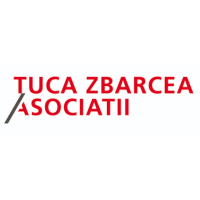
Chief legal officer | Teleperformance


Laura Rudnyanszky
Chief legal officer | Teleperformance
Could you share an example of a time when you came up with an innovation that improved the way your legal team works and did not come at a huge cost?
Recognising the need to streamline information dissemination, our in-house legal team grappled with a substantial administrative load in overseeing and managing compliance with a plethora of legal obligations stemming from diverse departments and facilitating collaboration among team members. I proposed the development of an internal knowledge-sharing platform. This platform allowed our team to share legal resources, templates, best practices, and important updates in real-time. It also featured discussion forums and a searchable database, enhancing accessibility to crucial legal insights.
The implementation cost was minimal as we utilised existing internal IT resources and platforms. The focus was on optimising our current infrastructure rather than investing in an entirely new system. Additionally, team members contributed to the platform’s development by sharing their expertise and knowledge.
This innovation significantly improved the cohesion and productivity of our legal team. Furthermore, this pioneering approach for the legal department not only streamlined our compliance monitoring processes but also alleviated our team from burdensome administrative tasks. Through the effective utilisation of technology, we achieved significant enhancements in our legal operations while upholding a financially prudent approach. It enhanced our ability to respond swiftly to legal queries, reduced duplication of efforts, and encouraged a culture of continuous learning within the department. The success of this initiative demonstrated that innovative solutions need not always be costly and can effectively harness existing resources to drive positive change.
What are some of the key developments that have affected your business over the last year?
Some key developments that might have influenced businesses in Romania include data protection and privacy regulations, telecommunications regulations, remote work and technology integration, labour laws and regulations, and not least, economic factors.
Economic changes or fluctuations in Romania, such as currency exchange rates, inflation, or economic stability, influence the cost of operations and overall business sustainability. Additionally, I would add that geopolitical events, trade agreements, and political developments at the international level can have implications for trade, investments, and the overall business environment,
How do you think the in-house legal role will evolve in the coming years?
In the next five years, I anticipate several significant developments in the practice of the general counsel (GC) and in-house legal teams. The use of artificial intelligence and machine learning in contract management, legal research, due diligence, and eDiscovery is expected to increase. This will enable legal teams to automate routine tasks, enhance their efficiency and accuracy, and devote more time to strategic advisory roles.
I also anticipate a greater emphasis on data privacy and cybersecurity, with the GC playing a crucial role in ensuring corporate compliance with changing regulations. GCs will need to navigate the legal implications of emerging technologies such as blockchain, AI, and robotics. Furthermore, the shift towards remote working is likely to become more permanent, necessitating that general counsel become proficient in virtual collaboration tools and effective management of remote teams.
Do you use any “legal technology” products and, if so, what areas of your work do you find it most useful for?
The most important product we use is the contract management software, as this product has improved contract lifecycle management, enhanced compliance, and reduced manual errors. We also utilise a practice management system which offer benefits, such as enhanced organisation, improved collaboration among legal teams, and better client service.
We also implemented legal research platforms which help make research more efficient, providing comprehensive access to legal information and saving time. Furthermore, document automation and assembly has helped us increase efficiency, reduce manual work, and minimise errors in document preparation. Finally, legal analytics provides us with data-driven insights, enabling better resource allocation and improved litigation strategy
Laura Rudnyanszky possesses an LLB in Law, an LLB in Management, and an LLM in International Private Law. Laura is proficient in English, Spanish, and Hungarian. She has been an accredited mediator since 2013, resolving various types of disputes, and she obtained the Data Protection Officer (DPO) certification in 2018.
In the early years of her career, Laura served as a non-commissioned officer at the Special Telecommunications Service (STS), a period that significantly shaped her professional trajectory. As she transitioned from the public sector to the private sector, she worked with esteemed law firms in Bucharest.
Laura has accumulated comprehensive career experience spanning more than 12 years in the domains of legal affairs, compliance, and corporate governance, possessing a wealth of experience as a seasoned professional. Her expertise lies in providing strategic direction and proficient solutions to intricate challenges within the realms of governance, finance, business sustainability, and technology.
In her capacity as the chief legal officer at Teleperformance Romania, Laura orchestrates a team of legal practitioners, compliance experts, and security and privacy officers entrusted with the management of all legal and regulatory affairs for the preeminent global digital business services organisation. Laura’s role extends to membership within the executive committee, where she offers counsel on strategic determinations, risk mitigation, and corporate governance.